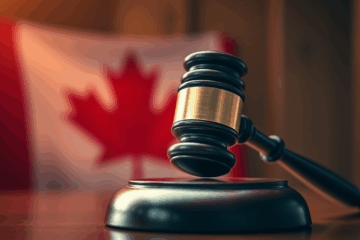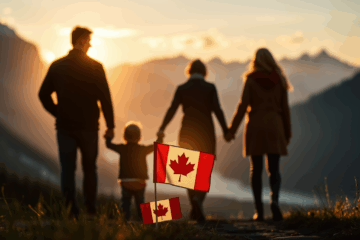Comparing Canada’s Refugee and Humanitarian Programs
Canada has long been recognized as a global leader in humanitarian efforts and refugee settlement. Its comprehensive refugee and humanitarian programs are designed to offer protection and new beginnings for individuals fleeing persecution and conflict. These programs not only reflect Canada’s commitment to human rights but also contribute to the country’s cultural diversity and economic growth. This article delves into Canada’s refugee and humanitarian landscape, exploring the intricacies of protected person status, insights from a Vancouver lawyer, and the role of humanitarian efforts and PR pathways in British Columbia.
Table of contents
Overview of Canada’s Refugee and Humanitarian Programs
Canada’s refugee and humanitarian programs are a testament to its dedication to providing safe haven to those in need. The government has established a multi-faceted approach that includes the Refugee and Humanitarian Resettlement Program, the In-Canada Asylum Program, and various private sponsorship initiatives. These programs aim to address different circumstances faced by refugees and asylum seekers, ensuring that Canada remains a welcoming nation for individuals from diverse backgrounds.
The Refugee and Humanitarian Resettlement Program is designed for individuals seeking protection from outside Canada. It involves collaboration with international agencies like the United Nations High Commissioner for Refugees (UNHCR) to identify and select refugees for resettlement. This program underscores Canada’s commitment to global humanitarian efforts and its willingness to share responsibility for the world’s displaced populations.
On the other hand, the In-Canada Asylum Program caters to those who make refugee claims within Canada. This program allows individuals already in the country to apply for refugee status, providing them with a fair opportunity to prove their need for protection. It highlights Canada’s adherence to international obligations and its respect for the rights of asylum seekers.
The Role of Protected Person Status in Immigration
Protected person status plays a pivotal role in Canada’s immigration framework. It is granted to individuals who have been recognized as needing protection from persecution, ensuring their safety and security within Canadian borders. This status is a crucial step for many refugees and asylum seekers as it serves as a gateway to permanent residency and, eventually, Canadian citizenship.
Once granted protected person status, individuals can apply for permanent residency, which provides them with a sense of stability and belonging. This transition from temporary protection to permanent residency is vital for integrating refugees into Canadian society, allowing them to contribute economically, socially, and culturally. The process, while thorough, ensures that Canada remains a refuge for those in dire need.
Moreover, protected person status is essential for upholding Canada’s international commitments to human rights and refugee protection. By offering this status, Canada demonstrates its adherence to the principles of non-refoulement, ensuring that individuals are not returned to situations where they may face harm. This commitment reinforces Canada’s role as a global leader in refugee protection and humanitarian efforts.
Insights from a Vancouver Lawyer on Refugee Policies
A Vancouver lawyer with expertise in immigration and refugee law provides valuable insights into Canada’s refugee policies. According to the lawyer, one of the strengths of Canada’s approach is its comprehensive legal framework that balances humanitarian concerns with national security. The lawyer emphasizes the importance of maintaining this balance to ensure that Canada’s refugee system remains robust and fair.
The lawyer also highlights the challenges faced by refugees navigating the legal system. Language barriers, lack of legal knowledge, and the complexity of the application process can be daunting for many. As such, the lawyer advocates for increased access to legal aid and support services to help refugees understand their rights and responsibilities within the Canadian context. This support is crucial in ensuring that all individuals seeking protection have a fair opportunity to present their cases.
Furthermore, the Vancouver lawyer underscores the significance of community involvement in refugee resettlement. By engaging local communities, Canada can foster an environment of inclusivity and support for newcomers. The lawyer notes that community-based initiatives not only aid in the integration process but also enrich the social fabric of Canadian society, ultimately benefiting both refugees and host communities.
Humanitarian Efforts and PR Pathways in British Columbia
British Columbia plays a significant role in Canada’s humanitarian efforts and offers various pathways to permanent residency for refugees and protected persons. The province is known for its welcoming stance toward newcomers, with numerous community organizations and government initiatives dedicated to supporting refugee resettlement and integration.
One of the key aspects of British Columbia’s approach is its focus on creating sustainable and inclusive communities for refugees. Programs such as the BC Refugee Readiness Fund provide financial and logistical support to organizations assisting refugees, ensuring that they have access to essential services such as housing, education, and healthcare. These efforts are crucial in helping refugees rebuild their lives and contribute to the province’s economy.
Additionally, British Columbia offers several pathways to permanent residency for refugees and protected persons. The Provincial Nominee Program (PNP) allows the province to nominate individuals for permanent residency based on specific economic and labor market needs. This program is an important tool for integrating refugees into the local workforce, addressing skill shortages, and promoting economic growth. By facilitating these pathways, British Columbia exemplifies its commitment to humanitarian principles and the successful settlement of refugees.
Canada’s refugee and humanitarian programs are a reflection of its core values of compassion, inclusivity, and global responsibility. Through comprehensive legal frameworks, community involvement, and provincial initiatives like those in British Columbia, Canada continues to set a high standard for refugee protection and integration. By offering pathways to permanent residency and supporting the resettlement process, Canada not only provides safety and security to those in need but also enriches its own society with the diverse contributions of newcomers. As global challenges persist, Canada’s steadfast commitment to humanitarian efforts remains a beacon of hope for refugees worldwide.
Frequent Asked Questions
-
What are Canada’s refugee and humanitarian programs?
Canada’s refugee and humanitarian programs are designed to provide protection and resettlement to individuals fleeing persecution and conflict, reflecting the country’s commitment to human rights.
-
What is the Refugee and Humanitarian Resettlement Program?
This program facilitates the resettlement of refugees identified by international agencies like the UNHCR, offering them a new beginning in Canada.
-
What is the In-Canada Asylum Program?
This program allows individuals already in Canada to apply for refugee status based on their need for protection.
-
What does protected person status mean?
Protected person status is granted to individuals recognized as needing protection from persecution, allowing them to stay safely in Canada.
-
How can protected person status lead to permanent residency?
Once granted protected person status, individuals can apply for permanent residency, ensuring long-term stability in Canada.
-
What role does a Vancouver lawyer play in refugee policies?
A Vancouver lawyer can provide legal guidance and support to refugees navigating the complex Canadian immigration system.
-
What challenges do refugees face in the legal system?
Language barriers, lack of legal knowledge, and the complexity of the application process can be significant challenges for refugees.
-
How does community involvement impact refugee resettlement?
Community involvement fosters inclusivity and support, helping refugees integrate and enriching the social fabric of Canadian society.
-
What is the BC Refugee Readiness Fund?
This fund provides financial and logistical support to organizations assisting refugees, helping them access essential services.
-
What are the pathways to permanent residency in British Columbia?
British Columbia offers various pathways, including the Provincial Nominee Program (PNP), which nominates individuals for residency based on labor market needs.
-
How do Canada’s refugee programs reflect its values?
These programs embody Canada’s core values of compassion, inclusivity, and global responsibility toward those in need.
-
What is the significance of the non-refoulement principle?
The non-refoulement principle prevents individuals from being returned to places where they may face harm, reinforcing Canada’s commitment to human rights.
-
How do humanitarian efforts contribute to Canada’s economy?
By integrating refugees into the workforce, these efforts help address skill shortages and promote economic growth.
-
What are private sponsorship initiatives?
Private sponsorship initiatives allow individuals or groups to support the resettlement of refugees, fostering community engagement.
-
What support services are essential for refugee integration?
Access to housing, education, healthcare, and legal aid is crucial for helping refugees rebuild their lives.
-
How does Canada’s legal framework support refugees?
Canada’s legal framework balances humanitarian concerns with national security, ensuring a fair refugee system.
-
What is the role of the UNHCR in Canada’s refugee programs?
The UNHCR collaborates with Canada to identify and select refugees for resettlement, reflecting global humanitarian efforts.
-
How does Canada ensure fair refugee claim processing?
Canada adheres to international obligations and ensures that refugees have a fair opportunity to present their claims.
-
What is the impact of language barriers on refugees?
Language barriers can hinder refugees’ access to services, legal aid, and community integration.
-
How does Canada support the mental health of refugees?
Programs that provide psychological support and counseling services are crucial for addressing the mental health needs of refugees.
-
What community initiatives support refugee integration in British Columbia?
Various community organizations offer programs and services to help refugees integrate into local communities.
-
How does the PNP benefit refugees?
The PNP helps refugees gain permanent residency while addressing local labor market needs.
-
What is the importance of cultural diversity in Canada?
Cultural diversity enriches Canadian society, contributing to its social and economic vibrancy.
-
How can refugees contribute to the Canadian economy?
Refugees can fill labor shortages, bring new skills, and enhance innovation, benefiting the economy.
-
What are the long-term goals of Canada’s refugee policies?
The long-term goals include successful integration of refugees, upholding human rights, and contributing to global humanitarian efforts.
-
What does the term “asylum seeker” mean?
An asylum seeker is someone who seeks international protection and has applied for refugee status in another country.
-
What steps are involved in the refugee resettlement process?
The process typically includes identification, selection, processing, and integration into the host country.
-
How does Canada promote awareness of refugee issues?
Through educational programs, public campaigns, and community events, Canada raises awareness about refugee issues.
-
What can individuals do to support refugees in Canada?
Individuals can volunteer, donate, or advocate for refugee rights and support services in their communities.
-
What are the potential barriers to refugee resettlement?
Barriers can include legal challenges, social stigma, and limited access to resources and support services.
-
How does Canada handle refugee claims?
Refugee claims are assessed through a thorough process that includes interviews and evaluations of the claimants’ circumstances.
-
What is the impact of global crises on Canada’s refugee policies?
Global crises can lead to increased refugee flows, prompting Canada to adapt its policies to meet humanitarian needs.
-
What resources are available for refugees in Canada?
Refugees can access various resources, including legal aid, housing assistance, language training, and employment services.
-
How do social networks aid refugee integration?
Social networks provide emotional support, resources, and opportunities for building connections within the community.
-
What is the importance of education for refugees?
Education is essential for equipping refugees with skills and knowledge needed for successful integration and employment.
-
How can local governments support refugee resettlement?
Local governments can provide funding, resources, and policies that facilitate refugee integration and community support.
-
What role do NGOs play in refugee support?
Non-governmental organizations (NGOs) provide essential services, advocacy, and support for refugees during their resettlement process.
-
How do cultural exchange programs benefit refugees?
Cultural exchange programs help refugees acclimate to their new environment while sharing their unique backgrounds with the community.
-
What is the significance of refugee advocacy?
Advocacy raises awareness of refugee issues, influences policy changes, and promotes the rights and needs of refugees.
-
How can refugees maintain their cultural identity in Canada?
Through community organizations, cultural events, and language programs, refugees can preserve their cultural heritage while integrating.
Discover more from Pax Law Corporation
Subscribe to get the latest posts sent to your email.



0 Comments